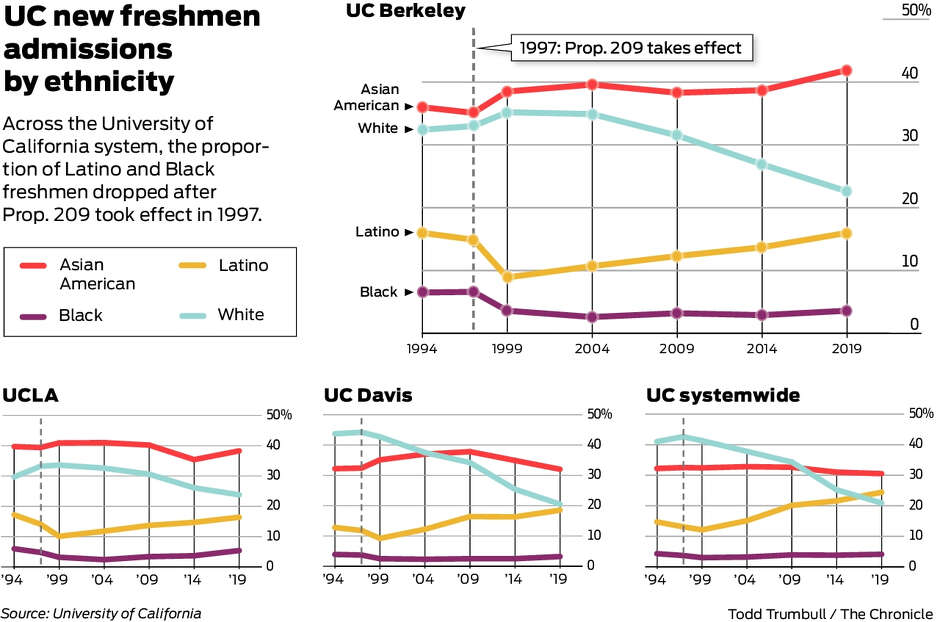The first step to finding the solution would be to identify the problem. Is underrepresentation the problem, or is it just a symptom?
Can African-Americans get into these colleges on their own merits, or have grades K-12 failed to adequately prepare them?
Is the problem with the public school system, or is it more about the home life of students?
Can we blame poverty for that?
Can we blame slavery, racism, and oppression for poverty?
Where do we start?
First thing to start at? Not always gunning for anything that was set up to try to get them back on the right path.
Then we look at the situation. Why are blacks primarily in the ghettos? Well, first off, like I've said before, the ghettos were actually not supposed to be the ghettos. They were supposed to be housing for the new young and modern successful couples, and then the great depression hit. Or people who came up from the South to help with the World War 2 effort.
And let's stick with the WW2 effort for a bit. They built up housing for the workers and their families. Oddly enough (and I'm sure not indictive of how blacks will be treated for generations to come), the white workers were given much better accommodations than whites, and no the races didn't live together.
While there were long waiting lists for the Black housing from people who came up to work for this country, there were new houses built for the white workers. With special clauses in the deeds to forbid non whites from owning or renting.
Those same whites who were making the same product built up a life, equity which they used to invest in themselves. After the factories stopped, they transitioned their skills to the private sector, using their homes for collateral to open up business. But after the factories stopped for blacks, they had no more money coming in. Nothing to put up for collateral to make their own businesses.
Again,
Color of Law. It's an interesting watch. You can still look up that these deeds still have this wording on them.
Then we go to education. Where teachers themselves get together and say that even accounting for income level,
Minorities still get less federal money for education.
Then we look at the people who wish to assign blame right back on the victim. When I give to charity, when I help, I don't hold my wallet to my chest and say "Wait... tell me everything that this person ever did, what his family has done historically, and where does his views lie so I can judge if I care enough to give". I'm not interested in passing judgment on someone who wants to better his or her lot in life. Because in the long run... I'm very selfish.
I realize the more people in my nation who can contribute leads to a better nation. It's the same analogy with the chain. A chain will only be as strong as it's weakest link. If you only put in time and effort to shine links that came from one store that you really love, and every once and again try to wash the other links that come from your dad or your brothers... when you attempt to use that chain, the weaker links will strain and break.
It's not the fault of those links because the person who are supposed to take care of it does not. But that's the situation we often find ourselves in.



